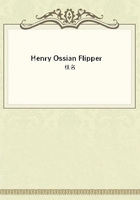
第21章
The plebe threw his gun down to the proper position and yelled out, "Who comes here?" The officer of the day stopped short, whereupon the plebe jumped at him and shouted, "Who stands here?" Immediately the officer started off, saying as he did so, "I'm not standing; I'm going." Then of course the challenge was again changed to, "Who goes here? "I'm not going; I'm coming," said the officer, facing about and approaching the sentinel. This was kept up for a considerable time, till the officer of the day got near a sentry-box and suddenly disappeared.
The plebe knew he was there, and yelled in a louder tone than before, "Who stands here? "Sentry-box," was the solemn and ghostly response.
It is hardly reasonable, I think, to say the plebe was frightened; but he actually stood there motionless, repeating his challenge over and over again, "Who stands here?"There was a light battery in park near by, and through this, aided by the gloom, the officer of the day managed to pass unobserved along, but not on the sentinel's post. He then got upon it and advanced on him, making the while much noise with his sword and his heavy tread. He walked directly up to the sentinel unchallenged, and startled him by asking, "What are you standing here yelling for?"The plebe told him that the officer of the day had been upon his post, and he had seen him go behind the sentry-box. And all this to the officer of the day, standing there before him, "Well, sir, whom do you take me to be?"The plebe looks, and for the first time brought to full consciousness, recognizes the officer of the day. Of course he is surprised, and the more so when the officer of the day inspects for his--the plebe's--satisfaction the sentry-box, and finds no one there. He "eats" that plebe up entirely, and then sends a corporal around to instruct him in his orders. When the corporal comes it may be just as difficult to advance him. He may, when challenged, advance without replying, or, if he replies, he may say, "Steamboat," "Captain Jack, Queen of the Modocs," as one did say to me, or something or somebody else not entitled to the countersign. Possibly the plebe remembers this, and he may command "Halt!" and call another corporal.
This latter may come on a run at "charge bayonets,"and may not stop till within a foot or so of the sentinel. He then gets another "cursing out." By this time the corporal who first came and was halted has advanced unchallenged and unnoticed since the arrival of the second. And then another cursing out.
Thus it is that plebe camp is made so hard.
Surely the officers and non-commissioned officers are right in testing by all manner of ruses the ability of the sentinels. It is their duty to instruct them, to see that they know their orders, and are not afraid to apply them.
Sometimes plebes enjoy it, and like to be cursed out. Sometimes they purposely advance toward a party improperly, to see what will be said to them.
It is fun to some, and to others most serious. At best it gives a plebe a poor opinion of West Point, and while he may bear it meekly he nevertheless sighs for the "-- touch of a vanished hand," the caressing hand of a loving mother or sister. I know I used to hate the very name of camp, and I had an easier time, too, than the other plebes.